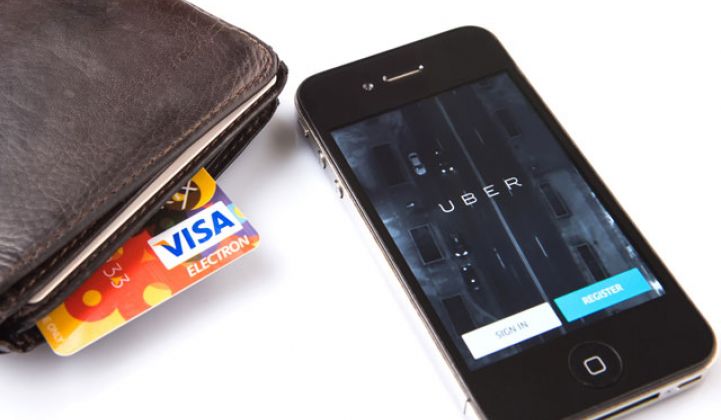The electric utility industry is endlessly being compared to telecoms. The telephone utilities were deregulated, and many have called for the same transformation for electric utilities. More competition; more choice. Sure, you may pay more in the future, but at least you’ll be getting something that you value.
One of the most forward-looking states for utility reform is New York, with its Reforming the Energy Vision proposal, which calls for distribution utilities to become distributed service platform providers (DSPPs) in the decentralized energy system of the future.
During a Clean Energy Connections panel on Wednesday evening, an executive from one of the utilities that will become a DSPP said that Uber might be an even better analogy.
“Uber didn’t buy your car,” said Charles Freni, SVP of customer services at Central Hudson Gas & Electric. Instead, he said, Uber is taking the customer's asset and using it for their business and everyone's financial gain. He said the analogy will be similar in New York: “The real opportunity is to collaborate to know what [customers] want.”
Successful businesses, he continued, know their customers’ needs and then tailor products to those needs. The REV process will entail forging new relationships not only with customers, but also with third-party providers that can offer customers options the DSPP cannot.
Just as Uber offers different rides that match “your style and budget,” so should the utility. Kate Burson, chief of staff to Richard Kauffman, the chairman of energy and finance for New York, noted that as our lives become increasingly entwined with electronic devices, even limited outages become unacceptable for an increasing number of people. She said a premium package might allow customers to pay more for storage backup so that reliability is never compromised, or gove them the ability to sell solar to their neighbor while they’re on vacation.
But Gerry Docherty, CEO of Smarter Grid Solutions, questioned whether there is the same pull from individual customers for novel offerings in electricity as there is in other sectors. “Most people might not care as long as the lights come on,” he said.
Before the New York utilities can start to provide everything from basic to premium services for all classes of customers, it will be necessary to begin sharing data on a broad scale. Some details about this process will be hammered out when the utilities file their distributed system implementation plans, which are due by December 15.
The DSPPs will also have to determine what hardware and system upgrades need to happen for customers to receive varied services. Freni noted that he didn’t ask for the cable box next to his television; he asked for an NFL package. But to get that NFL package, a piece of hardware is required.
For most New York utilities, it looks like those infrastructure upgrades might happen on the grid first, rather than with smart meters. Central Hudson Gas & Electric is not considering a widespread implementation of smart meters at this point, but for certain services in the future, that could be a consideration. “I don’t want the Mercedes of communications network until I need it,” he said.
Once people see what’s possible, however, some might want the Mercedes option. “There’s a tremendous amount of value in the electric system that we all take for granted,” said Burson.



